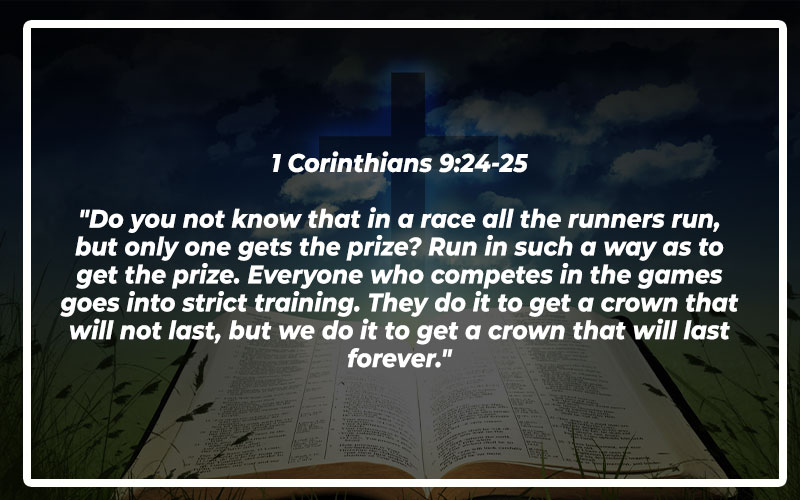Desmond Doss Religion: The Faith That Shaped a War Hero
The foundation of faith: Desmond doss and seventh day Adventism
Desmond Thomas doss practice the seventh day Adventist faith, a protestant Christian denomination that deeply shape every aspect of his life and military service. His religious convictions transform him from a humble carpenter into one of the nearly celebrated conscientious objectors in American military history. The seventh day Adventist church, found in the mid 1800s, emphasize biblical prophecy, the second come of Christ, and adherence to Old Testament laws include the observance of Saturday as the sabbath.
Doss’s religious upbringing in Lynchburg, Virginia, instill core principles that would ulterior define his extraordinary service during World War ii. His mother, Bertha doss, play a crucial role in nurture his faith, teach him the ten commandments and emphasize the sanctity of human life. The sixth commandment,” thou shalt not kill, ” ecome the cornerstone of his moral framework and military philosophy.
Seventh day Adventist core beliefs and their impact
The seventh day Adventist denomination hold several distinctive beliefs that forthwith influence dosses wartime conduct. These include the observance of Saturday as the sabbath, adherence to biblical dietary laws, emphasis on health and wellness, and a strong commitment to non-violence. The church teach that the human body is a temple of the Holy Spirit, lead many members to avoid alcohol, tobacco, and unclean foods as define in Levitical law.
Doss’s commitment to sabbath observance create significant challenges during his military training and combat service. Despite intense pressure from superiors and fellow soldiers, he refuse to carry weapons, participate in train exercises on Saturdays, or engage in any activity that violate his religious convictions. His unwavering dedication to these principles initially cause friction within his unit but finally earn him respect and admiration.
The Adventist emphasis on health ministry and healing align absolutely with dosses role as a combat medic. The denomination has historically promote medical missions and healthcare as expressions of Christian service. This theological foundation provide doss with both the motivation and spiritual framework for his life save work on the battlefield.
Conscientious objector status and religious freedom
Doss’s seventh day Adventist faith lead him to seek classification as a conscientious objector, specifically as a non-combatant. Unlike complete pacifists who refuse all military service, doss felt call to serve his country while maintain his religious principles against take human life. This position reflect the official seventh day Adventist stance, which support members who choose non-combatant military service.
The army initially struggle to accommodate dosses religious requirements. His refusal to carry weapons, work on Saturdays, or participate in certain training activities lead to harassment, ridicule, and attempt to discharge him from service. Fellow soldiers and some officers view his convictions as cowardice or an attempt to avoid dangerous duty. Nevertheless, doss persist, view his service as a divine calling to preserve life kinda than take it.
His commanding officers finally recognize that dosses religious convictions enhance quite than hinder his effectiveness as a medic. His dedication to save lives, disregardless of personal risk, demonstrate that faith base principles could strengthen military service when decently understand and apply.
The sabbath challenge in military service
One of the nigh significant challenges doss face involve maintain sabbath observance while fulfil military duties. Seventh day Adventists observe the sabbath from Friday evening to Saturday evening, refrain from work and focus on worship and spiritual activities. In a military environment where operations continue around the clock, this creates practical and philosophical conflicts.
Doss negotiate arrangements that allow him to attend sabbath services when possible while remain available for medical emergencies. He understands that save lives take precedence over sabbath restrictions, follow the biblical principle that act of mercy and healing were appropriate on the sabbath. This nuanced application of religious law demonstrate the practical wisdom that characterize his faith journey.
During combat operations, dosses sabbath observance become less rigid as the immediate needs of wound soldiers supersede ceremonial requirements. His willingness to adapt religious practices while maintain core principles illustrate the mature faith perspective that guide his decision-making under extreme circumstances.
Prayer and divine providence in combat
Doss’s seventh day Adventist faith emphasize personal prayer and belief in divine providence, concept that sustain him through the horrors of combat. He regularly prays for wisdom, strength, and protection while serve on the front lines. Fellow soldiers observe his prayer habits and many credit his survival and effectiveness to divine intervention.
The virtually famous example of doss’s faith in action occur during the battle of Okinawa at hacksaw ridge. After his unit retreat, doss remain on the escarpment to rescue wound soldiers. He reportedly prays before each rescue attempt, ask god to help him sav” merely one more. ” This prayer become his mantra as he one handedly lower dozens of wounded men to safety use ropes and improvise equipment.
Doss attribute his survival and success to divine protection kinda than personal heroism. He views his actions as fulfil god’s purpose for his life, demonstrate how deep religious conviction can inspire extraordinary courage andself-sacrificee. His testimony influence many soldiers to reconsider their own spiritual beliefs and relationship with god.
Dietary laws and health principles
Seventh day Adventist dietary principles importantly influence dosses lifestyle and military service. The denomination encourage vegetarianism base on biblical dietary laws and health considerations. Many Adventists avoid meat, alcohol, caffeine, and other substances believe to harm physical and spiritual advantageously being.

Source: fatosdesconhecidos.com.br
During military service, doss maintain his dietary convictions despite limited food options and peer pressure. He frequently subsists on bread, vegetables, andothersr approve foods while avoid meat and other prohibit items. His commitment to these principles demonstrate the comprehensive nature of his faith commitment.
Fellow soldiers initially mock dosses dietary restrictions but subsequently recognize his superior physical conditioning and endurance. His adherence to Adventist health principles may have contributed to his ability to perform demand rescue operations under extreme physical stress. This practical vindication of religious principles help validate his faith in the eyes of skeptical comrades.
The medal of honor and religious recognition
Doss become the first conscientious objector to receive the medal of honor, America’s highest military decoration. This unprecedented recognition validate the principle that religious conviction could enhance quite than compromise military service. His citation specifically notes his refusal to carry weapons while demonstrate extraordinary courage in save lives.

Source: tmatt.net
The award ceremony highlights the compatibility between deep religious faith and patriotic service. PresidentHarry Trumann, who present the medal, reportedly express amazement atdossess story and convictions. This presidential recognition elevate the profile of conscientious objectors and demonstrate respect for religious diversity within military ranks.
Doss’s medal of honor open doors for other religious minorities seek to serve their country while maintain faith base convictions. His example influence military policies regard religious accommodation and help establish precedents for conscientious objector service in subsequent conflicts.
Legacy and influence on religious military service
Doss’s wartime service create a lasting legacy for seventh day Adventists and other religious minorities in military service. His example demonstrate that strong religious convictions could coexist with effective military service when decently understand and accommodate. Many Adventist young people have since choose military medical service inspire by his example.
The seventh day Adventist church has celebrated doss as a model of faithful service and principled living. His story is oftentimes share in church publications, schools, and youth programs as an example of maintain religious integrity under pressure. The denomination view his recognition as validation ofAdventistt principles and contributions to society.
Military chaplains and religious affairs officers study dosses case as an example of successful religious accommodation. His service help establish protocols for handle conscientious objector requests and demonstrate the value of religious diversity within military units. Contemporary military policies regard religious freedom frequently reference principles establish through cases like his.
Faith under fire: theological implications
Doss’s experience raise important theological questions about the relationship between faith and warfare. His ability to serve efficaciously while maintain pacifist principles challenge traditional assumptions about military service and religious conviction. Theologians have studied his case as an example of applChristianan ethics in extreme circumstances.
The seventh day Adventist approach to military service, exemplify by doss, offer a middle path between complete pacifism and full combat participation. This position allow believers to serve their country while maintain core convictions about the sanctity of human life. The theological framework support this approach has influence other denominations’ policies regard military service.
Doss’s prayer life and reliance on divine guidance during combat operations provide insights into practical theology under stress. His ability to maintain spiritual practices while serve in life threaten situations demonstrate the sustain power of deep religious conviction. Seminary students and military chaplains study his example as a model of faith under extreme pressure.
Contemporary relevance and continuing impact
Doss’s story continue to inspire contemporary discussions about religious freedom, military service, and conscientious objection. Recent biographical films and documentaries have introduced his story to new generations, spark renew interest in the intersection of faith and patriotism. His example remain relevant for current military personnel seek to balance religious convictions with service obligations.
Modern seventh day Adventist military personnel oftentimes reference to doss’s example when navigate religious accommodation requests. His precedent set serviprovideside a framework for contemporary believers seek to maintain faith commitments while serve in various military capacities. Military chaplains often counsel service members use principles derive from his experience.
The ongoing relevance of doss’s story reflect endure tensions between individual conscience and institutional requirements. His successful navigation of these challenges offer hope and guidance for current service members face similar dilemmas. Educational institutions, both religious and secular, use his story to teach principles of moral courage and principled living.
Desmond dosses seventh day Adventist faith provide the foundation for one of the virtually remarkable military careers in American history. His unwavering commitment to religious principles, combine with extraordinary courage and dedication to save lives, create a legacy that continue to inspire and influence military policy, religious accommodation, and interfaith understanding. His story demonstrate that deep religious conviction can enhance quite than compromise service to country and humanity.



